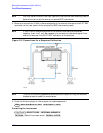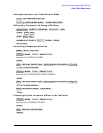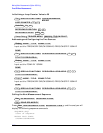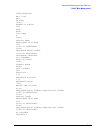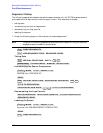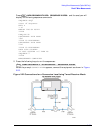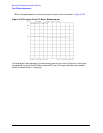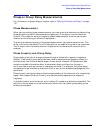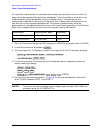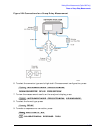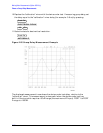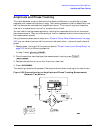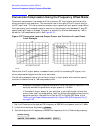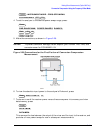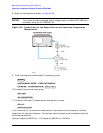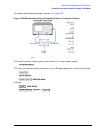
2-36
Making Mixer Measurements (Option 089 Only)
Phase or Group Delay Measurements
An important characteristic to remember when selecting a calibration mixer is that the
delay of the device should be kept as low as possible. To do this, select a mixer with very
wide bandwidth (wider bandwidth results in smaller delay). The accuracy of this
measurement depends on the quality of the mixer that is being used for calibration and
how well this mixer has been characterized. The following measurement must be
performed with a broadband calibration mixer that has a known group delay. The following
table lists the specifications of two mixers that may be used for calibration:
1. Set the LO source to the desired CW frequency of 1000 MHz and power level to 13 dBm.
2. Initialize the analyzer by pressing .
3. Set the analyzer’s LO frequency to match the frequency of the LO source by pressing:
4. From the front panel of the analyzer, set the desired receiver frequency and source
output power by pressing:
( , 8722ES)
5. Connect the instruments as shown in Figure 2-24, placing a broadband "calibration"
mixer (ZFM-4) between PORT 1 and PORT 2.
CAUTION To prevent connector damage, use an adapter (part number 1250-1462) as a
connector saver for R CHANNEL IN.
Model Number Useful Frequency Range Group Delay
ANZAC MCD-123 0.03 to 3 GHz 0.5 ns
Mini-Circuits ZFM-4 dc to 1250 MHz 0.6 ns
Preset
System
INSTRUMENT MODE
FREQ OFFS MENU
LO FREQUENCY
1000 M/µ
Center 300 M/µ
Span 100 M/µ
Power 0
PWR RANGE MAN
x1
−10 x1



